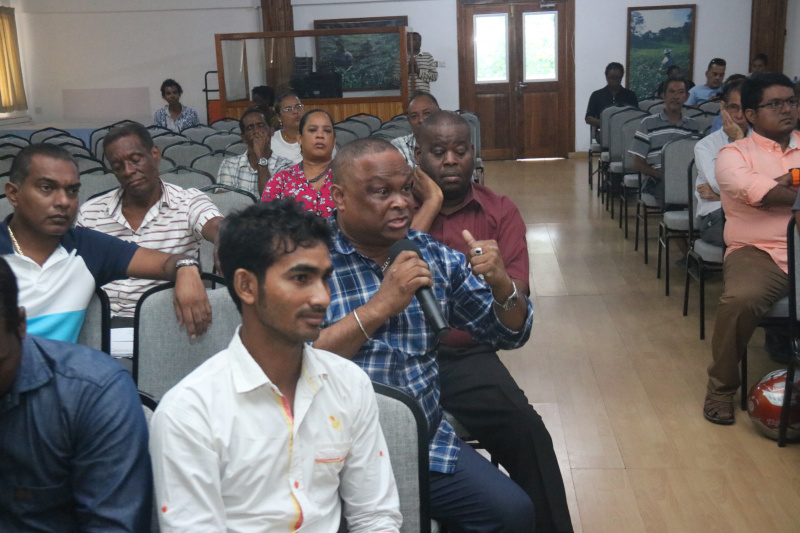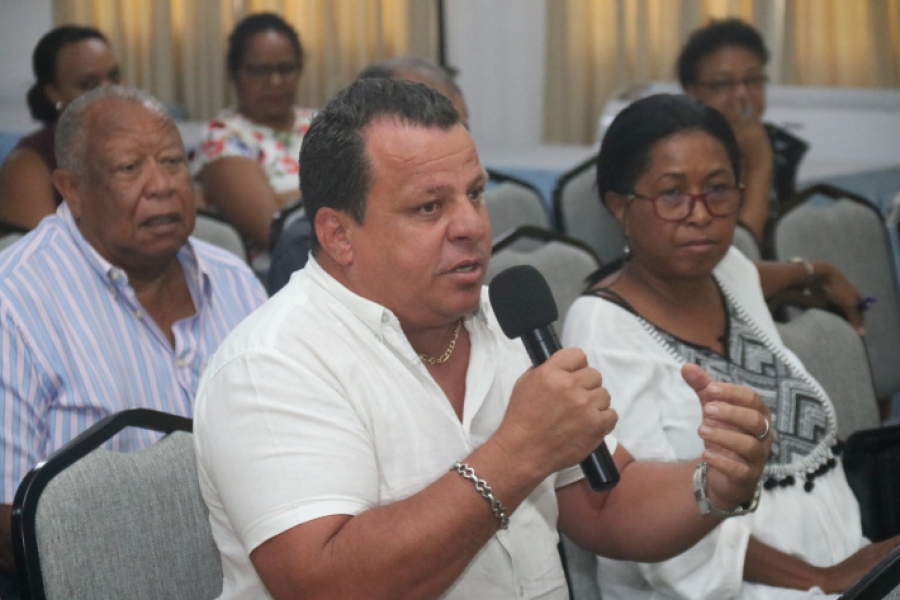Local employers voice out concerns over Bangladeshi labour agreement
Employers seeking to recruit Bangladeshi workers yesterday voiced their concerns regarding the new recruitment procedures, agreed by the government of Seychelles and the government of Bangladesh.
They did so in a stakeholders meeting organised by the department of Employment, under the Ministry of Employment, Immigration and Civil Status.
The new labour agreement, signed in October, follows the imposition of a moratorium on the recruitment of Bangladeshi workers last year and requires Seychellois employers to recruit workers through two approved government agencies in Bangladesh, namely the Bangladesh Overseas Employment and Services Limited (BOESL) and Bureau of Manpower Employment and Training (BMET), both of which were represented at the meeting yesterday.
As explained by the representatives of BOESL and BMET, employers seeking to recruit workers have to relay to the approved agency a letter of demand from the department of Employment, where they will then be required to sign a Power of Attorney document and other necessary documents.
The employer is also required to submit the Gainful Occupation Permit (GOP) for review by the agency, before the agency makes available the curriculum vitae’s of suitable candidates for selection by the employer themselves.
If the recruitment process is successful, a service charge applies, primarily to be borne by the employee, although employers are free to bear the cost at their own discretion.
It was further explained that an important component of the new procedure is a smart card, to be issued by the two agencies to Bangladeshi workers who are recruited and which contains all Biometric information of the worker.
Without the said smart card, workers will not be permitted entry into Seychelles, and risk immediate deportation.
Numerous local employers expressed dissatisfaction at the new procedures suggesting that it is overly complex for local employers and that the procedures are still unclear to them.
Pierre Quatre, a representative of the Seychelles Chamber of Commerce and Industry (SCCI), noted that he has tried to get into contact with one of the two approved agencies just a couple of weeks ago, and is yet to receive a response, leading him and others to question the agencies’ preparedness for the labour agreement.
“Since the new regulations were announced in October, local businessmen have tried to contact the two agencies and received no response, others have sent mails and not received replies which indicates that they were not ready to implement the system that the government of Seychelles has signed with the government of Bangladesh. There was a system whereby they requested some documents be sent to Bangladesh, but there are many difficulties that they are experiencing and there is total confusion. Therefore, I do not feel as if we are ready to implement the programme between the Bangladeshi government and the government of Seychelles,” Mr Quatre noted.
During the meet, the employers put forth numerous propositions including having a representative from the two agencies based in Seychelles, so the procedures and any arising issues can be solved through them.
“We proposed that a representative from the Bangladeshi recruiting agency be based in Seychelles so we can solve our issues directly through them. The government needs to reconsider this, through bilateral agreements to have a representative based in Seychelles. There are many, many issues and I do not understand why we are rushing the agreement. Let’s say for instance they vet someone but upon arrival the person cannot perform the said job, who will bear the cost?” he further questioned.
Other concerns revolved around the quality of workers, with many local employers seeking clarifications as to the guarantees and safeguards in place towards ensuring that the workers proposed by the agencies are indeed skilled and able to perform the duties required of them. Repatriation of workers in the event of death, was also a point of concern for many.
Director of labour migration at the department of Employment, Vanessa Dugasse, explained that all the procedures under the new agreement have now been finalised.

The meeting with the two agencies was initially scheduled for a later date, but had to be organised earlier on account of the number of complaints being raised by local employers and to finalise the final terms of the agreement.
“From now on, we expect things to get better. As with new rules and regulations, we expect a few hiccups here and there, but as the facilitator, we will intervene to sort out the issues as and when it arises,” she said.
“Some of the propositions which are being put forth now, we will act upon through negotiations between the government of Bangladesh and government of Seychelles, but some things will have to remain unchanged so as not to conflict with other laws,” Ms Dugasse noted.
The labour agreement aims to implement proper procedures for employment and repatriation of foreign workers, to protect their rights as well as prevent trafficking in persons and illegal employment of workers.
Stakeholders on Praslin will also have an opportunity to express theirs today, through a meeting being held at the Pension Fund Complex conference room from 9am to 12pm.
Laura Pillay
Complements of Seychelles NATION




